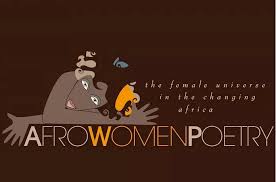The Dreaming Machine is delighted to reprise for our readers the following international project launched a few months ago by Italian print journal Le Voci della Luna in its issue n. 79. Introduced by Nandini Sahu’s critical essay which provides an engaging and informative overview of the development of feminist poetry by female poets in India, the project includes several poems by five important contemporary poetic voices from different generations and states of the Indian subcontinent, writing in different languages, most of them translated into English, thus providing a bridge for the Italian translation. Though the whole, bilingual English and Italian project was published in a single issue in March 2021 in Le Voci della luna, with the photography of Sumana Mitra on the cover and accompanying the poems, here we present the project in two parts, the second one including two poets- Sanghamitra Halder and Mandakranta Sen, an interview with Sumana Mitra as well as a gallery of her photos used for the Voci della Luna issue. Part II will end with a brief survey of issues and challenges encountered by the five Italian translators Lou Vezzali, Loredana Magazzeni, Francesca del Moro, Jessy Simonini and Pina Piccolo.
In May 2011, while talking to Royal Geographic Society in London, V S Naipaul, the recipient of the 2001 Nobel Prize in Literature, slammed out at female authors saying there is no woman writer whom he deliberates his equal. Even he claimed that Jane Austen couldn’t perhaps share her sentimental spirits, her emotional sense of the world. He felt women writers were “quite different,” by which he, of course, meant “quite inferior”. He said, “I read a piece of writing and within a paragraph or two I know whether it is by a woman or not. I think [it is] unequal to me.” (guardian.co.uk).
In response to this age old patriarchal debate, it’a welcome step by Italian literary journal le Voci della Luna to take up extensive research work on feminist poets across the globe.
Indian English Literature is an endeavour of presenting the major voices of India to the world literature; a new form of Indian philosophy in which the common Indian speaks out to the world. Indian writers have been making important contributions to world literature. In the post-Independence era, the academia has seen a massive embellishment of Indian English writing in the form of poetry. Indian Poetry in English, before Independence, was rather dominated by the male poets who wrote either on philosophical subjects or on nationalism. Rabindranath Tagore and Aurobindo Ghosh were the two poetic giants who dominated the literary scene though Toru Dutt and Sarojini Naidu succeeded in carving a niche for themselves in Indian Poetry in English, and they were practising what may be called ‘safe’ poetry for women poets. The post-1947 scenario was also not very encouraging from the point of view of women’s poetry in English. Then Kamala Das created her identity all over the world through her realistic treatment of love and sex, often stripping it of illusory romanticisms and thereby creating her own brand of ‘confessional’ poetry. Eunice de Souza did a laudable effort by editing an anthology titled Nine Indian Women Poets (OUP,1997) . She included nine post-independence Indian women poets: Kamala Das, Mamta Kalia, Melanie Silgardo, Eunice de Souza, Imtiaz Dharker, Smita Agarwal, Sujata Bhatt, Charmayne D’ Souza and Tara Patel and took up themes like time, history, social problems, spiritualism, ecology, language etc. Apart from them, there have been many other contemporary women poets like Meena Alexander, Monika Varma, Gauri Deshpande, Margaret Chatterjee, Lakshmi Kannan, Anamika, Shanta Acharya,Sunita Jain, Lila Ray, Savita Singh, Anna Sujatha Mathai, Nirupama Narasimham, Rukmini Bhaya Nair, Sanjukta Dasgupta, Smita Tewari,Nandini Sahu, Archna Sahni, Rizio Yahannan Raj, Preeti Singh, Sagari Chhabra,Rita Malhotra, Sukrita Paul Kumar,K Srilata, Arundhati Subramaniam etc. who are articulating the feminine sensibility while genuinely articulating women’s marginalization. Today, Indian women poets, through their powerful poetry, have created a milieu which is a platform for divulging and affirming their individuality that was denied to them earlier. The Indian women poets are exploring the female consciousness and expressing their ideas confidently, counteracting male domination with the contention of their ability and uniqueness. They have thrived in achieving the sovereignty for themselves in innumerable spheres in the contemporary scenario.
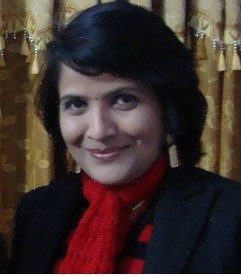
Prof.Nandini Sahu is a major voice in contemporary Indian English literature. She has accomplished her doctorate in English literature under the guidance of Late Prof. Niranjan Mohanty, Prof. of English, Visva Bharati, Santiniketan. She has been widely published in India, U.S.A, U.K., Africa and Pakistan. Apart from numerous other literary awards, she is a triple gold medalist in English literature; she has received the Gold Medal from the hon’ble Vice-President of India for her contributions to English Studies in India in the year 2019. She is the author / editor of eleven books titled ‘The Other Voice‘ (a poetry collection) , ‘Recollection as Redemption’, ‘Post-Modernist Delegation to English Language Teaching’, ‘The Silence’, (a poetry collection), ‘The Post Colonial Space: Writing the Self and the Nation’, “Silver Poems on My Lips” (a poetry collection), Folklore and the Alternative Modernities (Vol. 1 and Vol II), ‘Sukamaa and Other Poems’, ‘Suvarnarekha’ , and ‘Sita (A Poem)’ – all published from New Delhi. She is the Founder/Chief Editor of two bi-annual peer-reviewed journals in English, Interdisciplinary Journal of Literature and Language and Panorama Literaria.
Saanjukta Bandyopadhyay
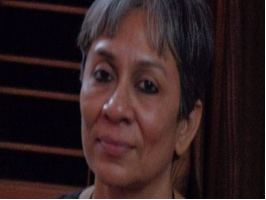
Born in Kolkata 1958, Sanjukta Bandyopadhyay’s first poetry collection Abidya was published in 1985. She has published twelve collection so far and has been awarded many literary prices. She is one of the most important Bengali voices in feminist poetry.
Nata nel 1958 a Calcutta, Sanjukta Bandyopadhyay ha esordito negli anni ottanta con Abidya (1985). Finora è autrice di dodici libri di poesia. Ha ottenuto molti premi letterari ed è una delle più importanti voci della poesia femminista bengalese.
|
Not A Goddess
|
Non una dea |
| In the western corner of the field, the goddess Chandi stands with her right hand up in the air, and from her hand, as is torn off, drop shreds and scraps of straw, stoned flints, dead faces of children. These days nothing looks like home anymore, at times she wishes only to tie her loose hair up in a knot. An insignificant woman wipes her turmeric-stained hands on her shari end, and furtively gather a few hibiscus flower, forgetting about them later. After drinking the hibiscus-blossom colour of night in the middle of the wilderness, drunk and alone, the goddess stands at the head of that forgetful woman’s bed in the guise of sleep.
In the Western corner of the field not a goddess, but one insignificant woman arranges withered hibiscus and endless nothing-ness on her shari ends.
(tradnslation by Arlene R.K. Zide reviewed by the author) |
Nell’angolo occidentale del campo, la dea Chandi* sta con la mano destra levata e dalla mano, mentre viene strappata, lascia cadere schegge e frammenti di paglia, pietre da lapidazione, volti morti di bambini. Di questi tempi niente sembra più casa, a volte desidera solo legarsi i capelli sciolti in un nodo. Una donna insignificante si asciuga le mani macchiate di curcuma con l’orlo del sari e raccoglie furtiva alcuni fiori di ibisco, per dimenticarli più tardi. Ha bevuto il colore bocciolo di ibisco della notte in mezzo al deserto. Ora, ubriaca e sola, la dea sta a capo del letto di quella donna immemore sotto le spoglie del sonno.
Nell’angolo occidentale del campo non una dea, ma una donna insignificante sistema ibisco appassito e infinito nulla sull’orlo del sari.
* Terribile divinità indu che incarna la potenza dell’ira. |
|
But of A Fairy Tale
|
Ma di una fiaba |
| My city wakes up streaming through many a stream
Autumn-fall
At its head magic-hill black-coloured lengthy-sigh Snake-totem
Today garden taps the door of the womb Now is spring
Here hate tumbles on a long lane Marble-play
When the eve descends on night-less glass-palace Tired girls
Krittikas protect this mid-city reed-forest Day of birth
(translated by the poet together with Dipankar Sen Roy) |
La mia città si sveglia fluendo in molti fiumi
Autunno
La guida il lungo sospiro della magica collina nera Totem del serpente
Oggi il giardino bussa alla porta del grembo È primavera adesso
Qui l’odio cade su un lungo sentiero Gioco di biglie
Quando la sera scende sul palazzo di vetro senza notte Ragazze stanche
Le Krittika* proteggono questo canneto in mezzo alla città Giorno di nascita
* Nome sanscrito delle Pleiadi. |
|
Birth
|
Nascita |
| I remember that cradle and on the mango leaf
A smiling face; that little baby with his baby-smell
I remember those futile tapping of saline On the doors of the birth-passage
Till the scalpel takes over. On the palms cupped together Blood of one mixing with the other
While firm, warm hands build hedges around the garden Then splitting the earth, outcomes Kumarsambhabam
(translated by the poet together with Dipankar Sen Roy) |
Ricordo la culla e sulla foglia di mango
un volto sorridente; un neonato con il suo profumo di neonato
Ricordo il vano bussare dell’acqua salata alle porte del varco della nascita
Finché non subentra il bisturi. Nei palmi congiunti a coppa un sangue si mescola all’altro
mentre mani tiepide e salde costruiscono siepi intorno al giardino Poi, spaccando la terra, esce Kumarsambhabam*
* Letteralmente “Nascita del dio della guerra”, poema mitologico scritto da Mahakavi Kalidasa (IV-V sec. d.C.).
|
Translation by Maria Luisa Vezzali
***
Taniya Chakraborty
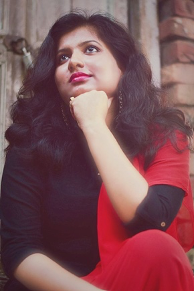
Born in 1990, Taniya Chakraborty is one of the most popular young poet. In spite of her young age, she has already published seven poetry collections.s
Nata nel 1990, Taniya Chakraborty è, tra le nuove leve, una delle autrici di maggiore successo. Nonostante la giovane età, ha già pubblicato sette raccolte di poesia.
| Mystery | Mistero |
| Eyes have come out breaking through stones
On putting off the specs hot smoke from soup comes out Infinite over salted fluid near I cannot explain the happiness of separation See on your right the most astonishing science Walks securely Inside the throat negative smell wells up I am flying in fear of smell. No nexus in the wings Opposite love has made the lungs leftist As everything is not beautiful I’ll give you blood There is a way, caress the sentenced Take up flesh on sharp incisors Now love… Love will teach you over salted mystery
(English translation by Debadrita Bose) |
Sono usciti occhi dalle pietre spaccate
Appena tolti gli occhiali sale vapore caldo dalla zuppa L’infinito sopra il vicino fluido salato Non posso spiegare la felicità della separazione Guarda, alla tua destra, la scienza più stupefacente Cammina con sicurezza Dentro la gola si accumula la negazione dell’odore Volo nella paura dell’olfatto. L’assente collegamento fra le ali Di fronte all’amore ha reso i polmoni di sinistra Visto che non tutto è bello, ti darò il sangue C’è una via, accarezza il condannato Raccogli la carne sugli incisivi affilati Ora ama… Sarà l’amore a insegnarti al di sopra di quel mistero salato. |
| Act | Recitare |
| I sleep when I’m idle not in darkness
Those who are sitting next to seaside With their hungry eyes And hidden expectations like them I’m living in showing off that I’m asleep Sky kept the mountain in dark If you are honest Other will be brutal to you Actually the opposite touch Brings the sleeping equality…
(English translation by Sayantan Chowdhury) |
Dormo quando sono pigra e non al buio
Quelli che siedono vicino al mare con i loro occhi affamati e le aspettative nascoste come loro Vivo mostrando di dormire Il cielo ha mantenuto la montagna all’oscuro Se sei onesto gli altri saranno brutali con te In realtà l’opposto toccare porta con sé l’uguaglianza del sonno… |
| Pea seed | Seme di pisello |
| This small family
Lonesome pea seed Lying beside soft torrents of water Grant complete ecstasy divine being They move gently upon the table This small family Elusive pea seed A girl in a torn blouse is scratching her belly –
(English translation by Inam Hussain Malik) |
Questa minuscola famiglia
un solitario seme di pisello riposa soave vicino torrenti d’acqua Concedi un’estasi completa, essere divino Si muovono piano sul tavolo Questa minuscola famiglia un elusivo seme di pisello una ragazza, con la camicetta sdrucita si gratta il ventre – |
| Fate | Sorte |
| Body that has desired body
When whole Myriad giraffes tug at leaves A reptile’s tail drops The instant when sowing ends Body is named soul
(English translation i Inam Husain Malik) |
Il corpo che ha desiderato il corpo
quando nella sua interezza una miriade di giraffe strappa le foglie cade la coda di un rettile L’attimo in cui la semina finisce il corpo si chiama anima. |
Translated by Jessy Simonini
***
Debarati Mitra
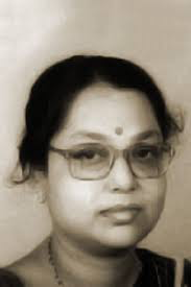
Debarati Mitra is a veteran of Bengali poetry. Born in 1946 in Kolkata, she was already active in the 1960’s , Her first collection Andhoschoole Ghanta Baje was published in in 1971. Up to now she has published twelve poetry collections and won many prestigious awards. Hers is a truly unique unique voice.
Debarati Mitra è una veterana della poesia bengalese. Nata nel 1946 a Calcutta, ha iniziato a muoversi nell’ambiente poetico durante gli anni Sessanta e il suo primo libro, Andhoschoole Ghanta Baje, è stato pubblicato nel 1971. Finora ha al suo attivo dodici raccolte di poesie. Ha ottenuto molti prestigiosi premi letterari. Dalla sua scrittura emerge una voce davvero unica.
| In Paloma College | Al college Paloma |
| No dust gathered this year in the summer vacation
on tables, chairs in closed rooms. Prolonged leisure under lock and key was filled with sound of birds flying Window sides were filled with songs, blissful sums, cozy portrayals. A conjurer with net for catching rabbits whatever he catches becomes a face, only upto the shoulders, nothing after that – Yet I fear not, so beautiful!
In the light vibrating like carrot soup listen in the depth of a teenage girl’s dance, listen to the mandolin, from a resonating tree – green seeps into pond water widened black like eyes of fish. I don’t like to blow bubbles of letters anymore, pages of books seem to be awakened cocoon cutting the net flew away in the stream of air.
In summer vacation, in the closed rooms not a tip of dust gathered this year.
(English translation from Bengali by Animikh Patra) |
Non si è posata polvere quest’anno nelle vacanze estive
su tavoli e sedie dentro le stanze chiuse. Il prolungato ozio sotto chiave si è riempito del suono di uccelli in volo I lati delle finestre si sono riempiti di canzoni, somme incantevoli, ritratti rassicuranti. Un mago con la rete per catturare conigli tutto ciò che cattura diventa una faccia, solo fino alle spalle, e poi niente – Ma io non ho paura, è bellissimo!
Nella luce tremolante come zuppa di carote ascolta in profondità la danza di un’adolescente, ascolta il mandolino da un albero risonante – il verde filtra nell’acqua dello stagno che si spalanca nera come occhi di pesce. Non mi piace più soffiare bolle di lettere, le pagine dei libri sembrano un bozzolo risvegliato tagliando la rete sono volate via nella corrente d’aria.
Nelle vacanze estive, dentro le stanze chiuse non si è posato un granello di polvere quest’anno. |
| In the drawing room | In salotto |
| Our evening was a library.
Friends are born as books this time – Aroma wafting through their bodies, They are black birds against white clouds: In the woods of Shami trees at night fire walks stumbling.
My brother is a moth, He wanted to get inside the books repeatedly, Sisters were incense smoke wrapped in the leaves. And I am a glass almirah. Shadow of southern hemisphere in the small room.
(English translation from Bengali by Animikh Patra) |
La nostra serata è stata una biblioteca.
Gli amici sono nati libri questa volta – Il profumo si diffonde attraverso i loro corpi, sono uccelli neri contro nuvole bianche: nei boschi di alberi Shami, la notte il fuoco cammina inciampando.
Mio fratello è una falena, voleva sempre entrare nei libri, le sorelle erano fumo d’incenso avvolto nelle foglie. E io sono un almirah* di vetro. Ombra dell’emisfero australe nella piccola stanza.
* Credenza o armadio indiano, spesso in legno lavorato.
|
| Bath of a young man | Il bagno di un giovane |
| Climbing down a disheveled flight of steps
the young man has come to bathe orchestra plays in the hilly tunnels from the tree’s uterine cone colourful drops of fire splashed into the fountain He rolls down trembling in the waves suddenly getting off a bright tight string
Comes flying water like a possessed virgin and breaks him and by breaking takes away natural artistry of white marble one of the sleeping thighs in silent womb dragged birthplace of distant hills
mingled that Sun’s sloth nostalgia clouds of dense woods wrapped with leaves.
(English translation from Bengali by Animikh Patra) |
Con una corsa spettinata per le scale
il giovane uomo è venuto a fare il bagno l’orchestra suona nei tunnel collinari dal cono uterino dell’albero variopinte gocce di fuoco sono schizzate nella fontana Lui rotola giù tremando tra le onde scendendo all’improvviso da una corda tesa e luccicante
Giunge un volo d’acqua come una vergine posseduta e lo spezza e spezzando porta via la naturale artisticità del marmo bianco una delle cosce addormentate nel grembo silenzioso ha trascinato la patria di lontane colline
vi ha unito quella pigra nostalgia del Sole nubi di fitti boschi avvolti nelle foglie. |
| Gray flag 1 | Bandiera grigia 1 |
| There are your blue pants left in the bushes,
You are nowhere. Are you ancient bird, the creator-male are you? Did you use to fly in air with clothes on? Nowadays I get so intoxicated that I remember nothing. Only once you were in front of me just at noon time, Green from the dense woods was on your eyes, your age two-four minutes younger to me. As soon as you called my name with a tune, blown me two-five times with your wings, struck on my lips with your beaks, I readily fainted.
You have swallowed all colors and wandering being the sky, and I didn’t notice you.
What are those in the bushes? Why so many blue feathers are there?
This is my life, misery of an ant.
(English translation from Bengali Animikh Patra) |
Ci sono i tuoi pantaloni blu abbandonati tra i cespugli,
tu non sei da nessuna parte. Sei un antico uccello, sei tu il maschio-creatore? Volavi sempre con gli abiti indosso? Di questi tempi mi ubriaco così tanto da non ricordare nulla. Solo una volta mi sei stato di fronte a mezzogiorno in punto, sugli occhi avevi il verde dei fitti boschi, la tua età mi appariva di due-quattro minuti più giovane. Appena hai chiamato il mio nome musicalmente, e con le ali mi hai soffiato due-cinque volte, mi hai colpito le labbra coi tuoi becchi, sono svenuta prontamente.
Hai inghiottito tutti i colori, il cielo stava girovagando e non mi sono accorta di te.
Cosa sono quelle cose tra i cespugli? Perché ci sono così tante piume blu?
Questa è la mia vita, miseria di formica. |
Translation by Francesca Del Moro
***












































